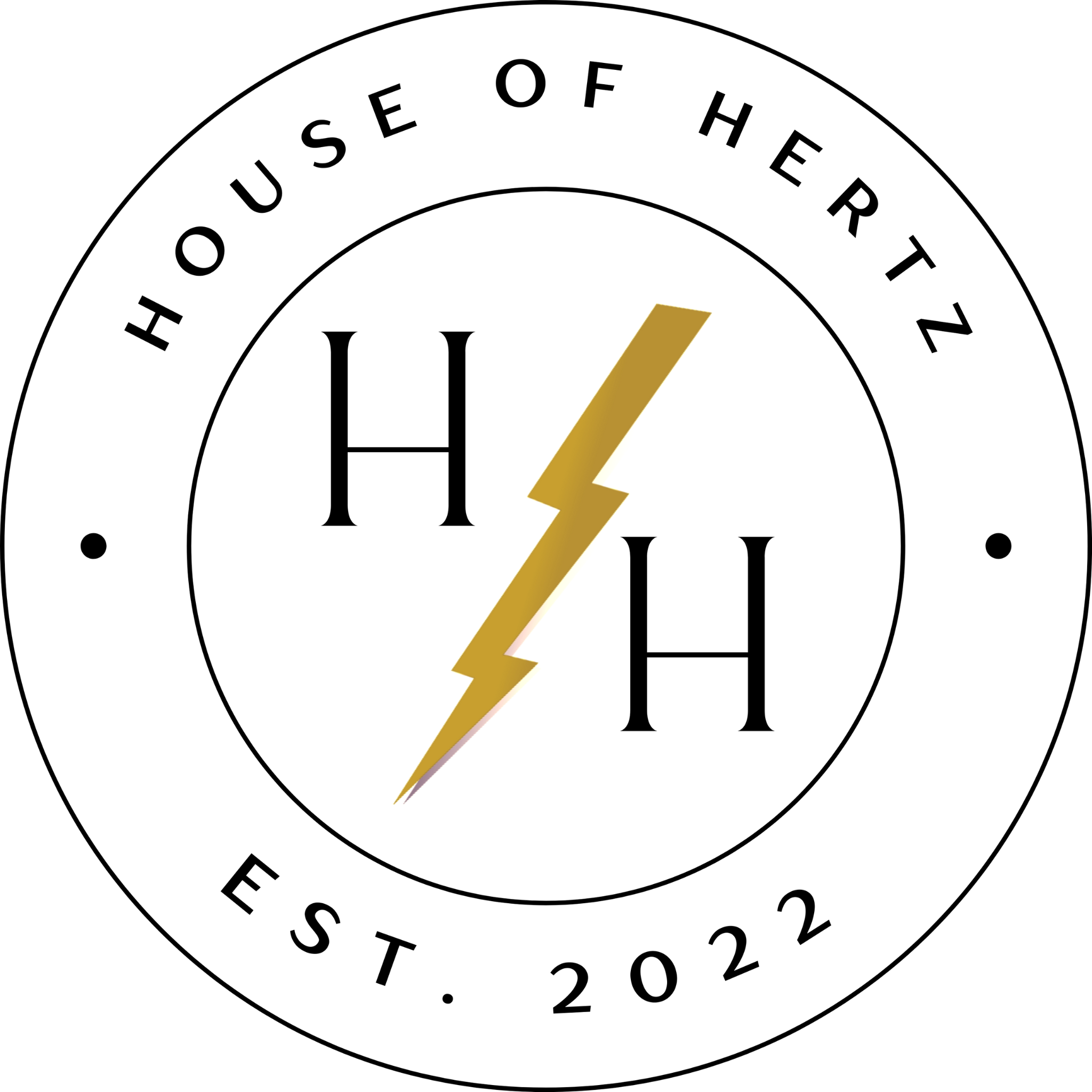

Understanding the Basics of IASIS Treatment
In the realm of neurological therapy, finding effective and holistic treatments can be a challenge. However, one approach gaining recognition for its promising outcomes is IASIS MCN therapy, also known as IASIS microcurrent neurofeedback therapy.
This innovative therapy offers a non-invasive, gentle solution for individuals seeking to address neurological issues and dysregulated states. By stimulating the brain's self-correcting capabilities and treating the source of the problem, rather than just alleviating symptoms, IASIS MCN therapy can potentially promote deep-rooted and long-lasting improvements in neurological function.
In this blog, we will delve into what IASIS microcurrent neurofeedback is, how it works, what it can treat, and the benefits of it. Keep reading to learn more!
What Is IASIS Treatment?
IASIS Treatment is an innovative therapy that uses electrical stimulation to target imbalances in the brain. The treatment is based on the principle that the brain is an electrical system, and imbalances in brain activity can lead to various mental and physical health concerns.
Micro Current Neurofeedback (MCN) is a form of IASIS Treatment that uses a low-intensity pulse called transcranial Electrical Stimulation (LIP-tES) to provide microcurrent stimulation to the brain.
This stimulation has been reported to enhance brainwave activity and promote greater brain balance. MCN has been widely utilized in treating conditions such as depression, anxiety, OCD, ADHD, PTSD, traumatic brain injuries, and other behavioral health symptoms.
IASIS Treatment does not involve the use of drugs, and continued IASIS treatment often allows the client to reduce the dosing and frequency of other non-opioid prescription medication, making it an attractive option for those sensitive to traditional medicines.
How Does IASIS Treatment Work?
IASIS treatment, specifically microcurrent neurofeedback (MCN), works by causing brief microcurrent stimulation to the nervous system, leading to brainwave fluctuations. This fluctuation allows the brain to reorganize itself and shift from its former patterns, helping it to self-regulate and improve its functionality.
IASIS MCN therapy helps restore brain balance and healthy brainwave activity by assisting the brain in releasing old stuck brainwave patterns and creating new, healthier patterns.
Unlike traditional talk therapies, IASIS MCN produces measurable changes in brainwaves without requiring conscious effort from the individual receiving the feedback. The noninvasive treatment uses low-power electromagnetic fields to give feedback to the person receiving it.
The specific mechanisms by which IASIS treatment works are still being studied, but it is believed that microcurrent stimulation helps optimize brain performance, improve nervous system function, and support overall brain health.
By restoring balance to the brain and promoting healthy brainwave activity, IASIS treatment can alleviate neurological issues, including addictions, PTSD, ADHD, anxiety, depression, migraines, and more.
Conditions Treated With IASIS Treatment
IASIS microcurrent neurofeedback has been reported to be beneficial for various conditions. While individual results may vary, it has been used to treat:
Depression: Depression is a mental health disorder characterized by persistent sadness, loss of interest or pleasure in activities, and a range of emotional and physical symptoms. It is more than just feeling "down" or having a temporary low mood. Depression can significantly impact daily functioning, relationships, and overall quality of life.
Common symptoms of depression include:
Persistent feelings of sadness, emptiness, or hopelessness.
Loss of interest or pleasure in previously enjoyed activities.
Changes in appetite and weight (significant weight loss or weight gain).
Sleep disturbances (insomnia or excessive sleeping).
Fatigue or lack of energy.
Difficulty concentrating, making decisions, or remembering things.
Feelings of guilt, worthlessness, or excessive self-blame.
Restlessness or irritability.
Physical symptoms such as headaches, digestive problems, or unexplained aches and pains.
Thoughts of death or suicide.
Depression can have various causes, including genetic factors, certain life events or circumstances (such as trauma, loss, or chronic stress), chemical imbalances in the brain, and certain medical conditions. It is a complex condition and varies from person to person.
Anxiety: Anxiety is a feeling of unease, such as worry or fear, that can be mild or severe and can be caused by several factors. Occasional anxiety is a normal part of life, but it may be a symptom of an anxiety disorder when it interferes with activities like work, school, or personal relationships.
Anxiety can be linked to many different types of disorders, including generalized anxiety disorder (GAD), panic disorder, obsessive-compulsive disorder (OCD), social anxiety disorder, phobias, and post-traumatic stress disorder (PTSD).
Signs and symptoms of anxiety can include:
Excessive worry or fear.
Restlessness and difficulty maintaining concentration.
Elevated heart rate or palpitations.
Rapid breathing or hyperventilation.
Sweating or flushing.
Shaking or tremors.
Muscle tension or aches.
Difficulty falling asleep, staying asleep, or feeling restless at night.
Avoidance of situations or activities that may trigger anxiety.
Irritability, frustration, or anger.
Anxiety can have many causes, including biological and environmental factors. Genetic factors and chemical imbalances in the brain can contribute to anxiety disorders, as can traumatic experiences or chronic stress in personal or work life.
Post-Traumatic Stress Disorder: PTSD is a mental health condition that can develop in individuals who have experienced or witnessed a traumatic event. It is a complex disorder that affects the way a person thinks, feels, and behaves after experiencing or witnessing a traumatic event.
Common causes of PTSD can include:
Physical or sexual assault
War or combat exposure
Natural disasters
Serious accidents
Terrorism
Childhood abuse
When a person experiences PTSD, it usually takes the form of intrusive thoughts and memories, avoidance and emotional numbing, negative thoughts and mood, or hyperarousal and reactivity.
Attention Deficit Hyperactivity Disorder: ADHD is a neurodevelopmental disorder characterized by a persistent pattern of inattention, hyperactivity, and impulsivity that can interfere with daily functioning and development.
The key symptoms of ADHD can be divided into three main categories: inattention, hyperactivity, and impulsivity. ADHD can manifest differently in individuals, and not all symptoms may be present in every person with the disorder. The severity and combination of symptoms also vary among individuals.
ADHD typically emerges in childhood and can continue into adolescence and adulthood. The specific cause of ADHD is not known, but it is believed to involve a combination of genetic, environmental, and neurological factors.Obsessive-Compulsive Disorder: OCD is a mental health disorder characterized by intrusive, unwanted, and time-consuming thoughts, images, or urges (obsessions) that cause significant distress.
People with OCD often engage in repetitive, ritualized behaviors or mental acts (compulsions) in an attempt to alleviate or prevent anxiety related to these obsessions. However, these compulsions are temporary solutions and can contribute to further distress and impairment in functioning.
The symptoms of OCD can be categorized into two types: obsessions and compulsions. OCD can be caused by various factors, including genetics, environmental factors, and changes in brain chemistry and functioning.
Research suggests that OCD may be linked to abnormal activity in some regions of the brain, including the basal ganglia and prefrontal cortex.Traumatic Brain Injury: A TBI occurs as a result of a forceful blow, jolt, or impact to the head or body. It can also be caused by an object penetrating the skull and entering the brain. TBIs can range from mild to severe and can have varying effects on an individual's brain function.
Common causes of traumatic brain injuries include falls, motor vehicle accidents, sports injuries, and assaults. Everyone is susceptible to TBIs, but certain groups may be at a higher risk, such as young children, teenagers, and older adults.Addictions: An addiction refers to a chronic and often relapsing disorder characterized by compulsive and uncontrollable drug or substance use, despite negative consequences on the individual's health, relationships, and overall well-being. It is considered a complex brain disorder that affects the reward center and other areas involved in decision-making, motivation, and self-control.
Migraines: A migraine refers to a type of headache characterized by severe throbbing pain or a pulsing sensation, often on one side of the head. Symptoms of migraines can include nausea, vomiting, and extreme sensitivity to light and sound. Migraine attacks can last hours to days and can be debilitating, interfering with daily activities.
The exact cause of migraines is not fully understood. Still, it is believed to involve abnormal brain activity, including changes in blood flow and chemical imbalances in the brain. Genetics also play a role, as migraines tend to run in families.IASIS microcurrent neurofeedback can also help with insomnia and other sleep disorders, chronic pain, memory and cognitive issues, autism spectrum disorders, behavioral health symptoms, mood disorders, stress-related conditions, and neurological conditions.
Benefits of IASIS Treatment
Supports rest and recovery: IASIS MCN therapy activates the parasympathetic nervous system, which promotes a sense of calmness and balance. People often report feeling remarkably calm and balanced even after their first session.
Non-invasive and gentle nature: IASIS MCN therapy is suitable for all ages, including children, adults, and the elderly. The electrodes placed on the scalp deliver small, painless electrical signals that stimulate the brain to self-correct through dynamic feedback. The electrical impulses that the electrodes deliver are so low that most people can’t even feel them.
Treats the source of the problem: The therapy treats the source of the problem rather than just addressing the symptoms, providing a holistic approach to improving neurological function. IASIS MCN targets the dysregulated brainwave patterns instead of just alleviating the symptoms.
May restore optimal brainwave activity: IASIS MCN therapy aims to restore optimal brainwave activity and assists the brain in releasing patterns to develop healthier brainwave patterns. By relaxing the brain, this therapy can help in reducing dysregulation and improving overall brain function.
Try IASIS MCN Therapy With House of Hertz
Are you tired of managing your symptoms instead of addressing the root cause? Try IASIS MCN therapy with House of Hertz. Our experienced team is dedicated to helping you. Our gentle and non-invasive approach aims to restore optimal brainwave activity, promoting lasting improvement in your neurological function.
Schedule a consultation with House of Hertz today to see how IASIS MCN therapy can help you.
Copyright ©2026 House of Hertz All Rights Reserved
*This statement has not been evaluated by the Food and Drug Administration. The services & products are not intended to diagnose, treat, cure, or prevent any disease.DISCLAIMER: This website does not contain medical advice. IASIS Neurofeedback, rather, the IASIS MCN device is indicated for relaxation training and muscle reeducation and prescription use consistent with 21 C.F.R. section 882.5050.” A biofeedback device is an instrument that provides a visual or auditory signal corresponding to the status of one or more of a patient’s physiological parameters (e.g., brain alpha wave activity, muscle activity, skin temperature, etc.) so that the patient can control voluntarily these physiological parameters; and a prescription battery powered device that is indicated for relaxation training and muscle reeducation and prescription use. The information, including but not limited to text, videos, images, and other material contained on this website is for informational purposes only. The purpose of this website is to promote broad consumer understanding and knowledge about IASIS Neurofeedback. It is not intended to be a substitute for professional medical advice, diagnosis, or treatment. If you believe you have a medical condition, please first, always seek the advice of your physician or other qualified health care provider with any questions you may have regarding a medical condition or treatment and before undertaking a new health care regimen, and never disregard professional medical advice or delay in seeking it because of something you have read on this website. Never self-medicate or choose to discontinue taking medicine without discussing your medical care with your doctor.

